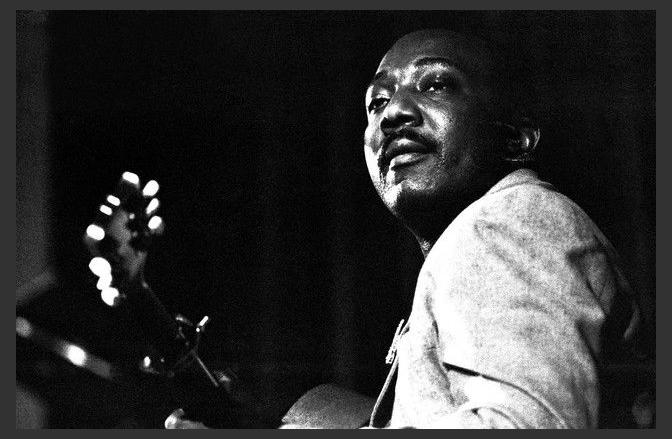 J. B. Lenoir
J. B. Lenoir
J. B. Lenoir: The Bluesman of the Delta
Amidst the fertile delta lands of Mississippi, where the blues seeped from the soil, emerged a musical legend whose voice echoed the travails and triumphs of his people. J. B. Lenoir, born in 1929, was a gifted singer, songwriter, and guitarist who left an indelible mark on the blues genre.
Early Life and Influences
Lenoir grew up in a sharecropping family, immersed in the rich musical tapestry of his surroundings. His father played the harmonica, while his mother sang spirituals. From an early age, Lenoir was drawn to the blues, inspired by the likes of Muddy Waters and Robert Johnson.
Musical Journey
By the 1950s, Lenoir had begun performing in local juke joints and clubs. In 1954, he recorded his first single, "Eisenhower Blues," which became a modest hit. However, it was the release of his seminal song, "Alabama Blues," in 1959, that catapulted him to national prominence.
Alabama Blues
"Alabama Blues" was a raw and powerful ballad that captured the horrors of racial injustice in the Deep South. Lenoir's haunting vocals and evocative lyrics painted a vivid picture of police brutality and the struggles of African Americans. The song became an anthem for the Civil Rights Movement and a testament to Lenoir's courage and compassion.
Challenges and Controversies
Lenoir's outspoken lyrics and activism often drew the ire of authorities. He was arrested and jailed multiple times for vagrancy and other petty offenses. Undeterred, he continued to use his music as a platform for protest.
Discography
Lenoir's discography spans over two decades and includes numerous albums and singles. Some of his most notable works include:
* Alabama Blues (1959)
* J. B. Lenoir Recorded Live (1965)
* The Mojo Man (1970)
* Brother J. B. Lenoir (1979)
Members
Lenoir's band members varied throughout his career. However, some of the most notable include:
* George Smith (guitar)
* Jerome "Bigfoot" Thomas (bass)
* Johnny Otis (drums)
Legacy
J. B. Lenoir's music transcended the boundaries of genre and left a lasting impact on the blues world. His passionate advocacy for social justice inspired countless musicians and activists. Lenoir passed away in 1967 at the age of 38, but his legacy continues to resonate with audiences today. He is considered one of the most influential blues musicians of all time.
Amidst the fertile delta lands of Mississippi, where the blues seeped from the soil, emerged a musical legend whose voice echoed the travails and triumphs of his people. J. B. Lenoir, born in 1929, was a gifted singer, songwriter, and guitarist who left an indelible mark on the blues genre.
Early Life and Influences
Lenoir grew up in a sharecropping family, immersed in the rich musical tapestry of his surroundings. His father played the harmonica, while his mother sang spirituals. From an early age, Lenoir was drawn to the blues, inspired by the likes of Muddy Waters and Robert Johnson.
Musical Journey
By the 1950s, Lenoir had begun performing in local juke joints and clubs. In 1954, he recorded his first single, "Eisenhower Blues," which became a modest hit. However, it was the release of his seminal song, "Alabama Blues," in 1959, that catapulted him to national prominence.
Alabama Blues
"Alabama Blues" was a raw and powerful ballad that captured the horrors of racial injustice in the Deep South. Lenoir's haunting vocals and evocative lyrics painted a vivid picture of police brutality and the struggles of African Americans. The song became an anthem for the Civil Rights Movement and a testament to Lenoir's courage and compassion.
Challenges and Controversies
Lenoir's outspoken lyrics and activism often drew the ire of authorities. He was arrested and jailed multiple times for vagrancy and other petty offenses. Undeterred, he continued to use his music as a platform for protest.
Discography
Lenoir's discography spans over two decades and includes numerous albums and singles. Some of his most notable works include:
* Alabama Blues (1959)
* J. B. Lenoir Recorded Live (1965)
* The Mojo Man (1970)
* Brother J. B. Lenoir (1979)
Members
Lenoir's band members varied throughout his career. However, some of the most notable include:
* George Smith (guitar)
* Jerome "Bigfoot" Thomas (bass)
* Johnny Otis (drums)
Legacy
J. B. Lenoir's music transcended the boundaries of genre and left a lasting impact on the blues world. His passionate advocacy for social justice inspired countless musicians and activists. Lenoir passed away in 1967 at the age of 38, but his legacy continues to resonate with audiences today. He is considered one of the most influential blues musicians of all time.